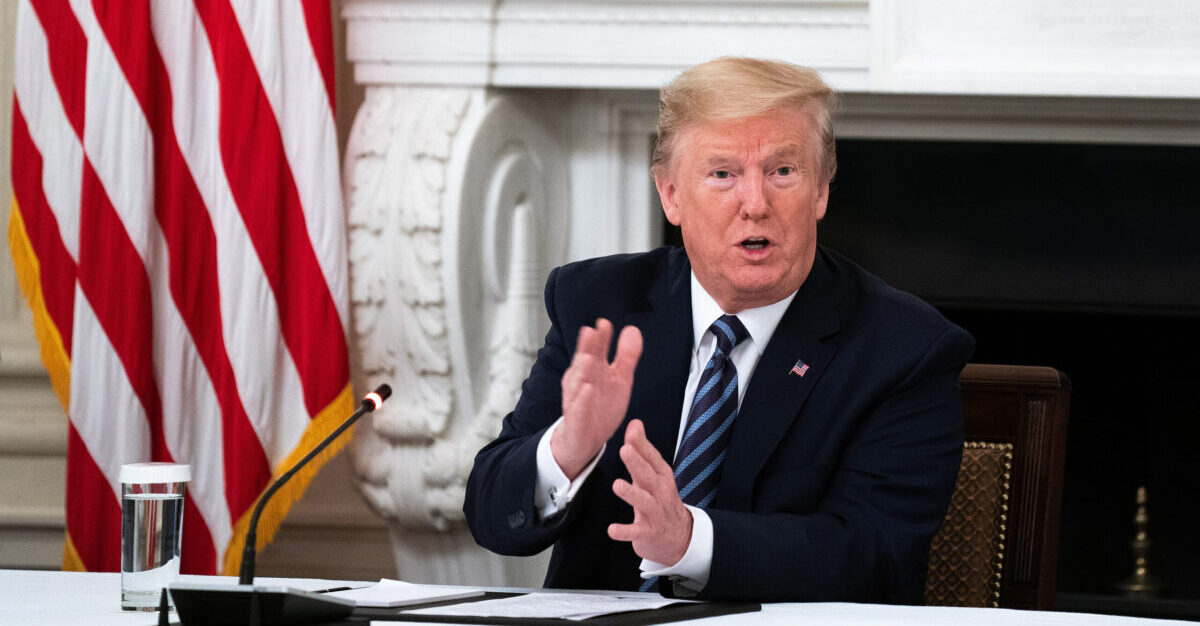
The reason President Donald Trump quoted a Wall Street Journal editorial on Wednesday is probably because it said his archnemesis, Rep. Adam Schiff (D-Calif.), should never be believed ever again. But the very same editorial said that the president himself “often spreads falsehoods” and “invents facts.”
The Trump tweet: “’Newly released documents show Schiff knew all along there was no proof of Russia-Trump collusion.’ Wall Street Journal.”
What the president was referring to are numerous transcripts released last week by the House Intelligence Committee, the congressional committee that Schiff chairs. Those transcripts included the responses of former Obama administration officials during the committee’s investigation of Russian interference in the 2016 election.
The Journal dinged Schiff for telling Chuck Todd in March 2017 that there was “more than circumstantial evidence” of collusion between the Trump campaign and Russia.
“I don’t want to get into specifics but I will say that there is evidence that is not circumstantial and is very much worthy of an investigation,” said Schiff in response to Todd’s question about whether the congressman had seen anything more than circumstantial evidence of “collusion.”
Collusion was a word often used as a kind of shorthand to describe the Trump campaign’s interactions with various Russians in the lead up to the 2016 election. But as former special counsel Robert Mueller noted when asked about the collusion subject, his Russia report didn’t address collusion—because the investigation wasn’t actually looking for “collusion.” It examined whether there was evidence of conspiracy.
“We did not address ‘collusion,’ which is not a legal term,” Mueller said during a public hearing. “Rather, we focused on whether the evidence was sufficient to charge any member of the campaign with taking part in a criminal conspiracy. It was not.”
In short, it is wrong to say that Mueller investigated collusion. In saying so, Trump ignores (1) that there was evidence that didn’t rise to the level of criminal conspiracy, and (2) that he was “not exculpated” of obstruction.
Along with the release of the aforementioned transcripts, Schiff criticized Attorney General William Barr for having said that Mueller found “no collusion.” Schiff maintained that there was “ample evidence” of Trump-Russia corruption.
While Special Counsel Mueller found insufficient evidence to prove the crime of criminal conspiracy beyond a reasonable doubt, he refused to draw any conclusion on the issue of collusion — contrary to false representations made by Attorney General Bill Barr and others. There is ample evidence of the corrupt interactions between the Trump campaign and Russia, both direct and circumstantial, in the record.
To support that, Schiff cited: the infamous Trump Tower meeting involving top Trumpworld figures who were interested in obtaining dirt on Hillary Clinton; the House Intel transcripts that show “numerous individuals affiliated with or working for the Trump campaign were in communication with individuals offering help to set up private backchannels with the Russian government”; and the numerous individuals connected to the campaign who pleaded guilty to crimes or were found guilty of crimes.
The Journal’s editorial board countered this by saying that Schiff knew all along that there wasn’t a smoking gun:
In July 2017, here’s what former Director of National Intelligence James Clapper told Mr. Schiff and his colleagues: “I never saw any direct empirical evidence that the Trump campaign or someone in it was plotting/conspiring with the Russians to meddle with the election.” Three months later, former Obama Attorney General Loretta Lynch agreed that while she’d seen “concerning” information, “I don’t recall anything being briefed up to me.” Former Deputy AG Sally Yates concurred several weeks later: “We were at the fact-gathering stage here, not the conclusion stage.”
For that, they said, Schiff shouldn’t be listened to again. And for that, the president highlighted the editorial.
But what the president didn’t mention in his tweet was that the editorial which said Schiff should never be believed again also said that Trump himself “often” tells “falsehoods” and makes things up:
President Trump often spreads falsehoods and invents facts, but at least he’s paid a price for it in media criticism and public mistrust. An industry of media fact checkers is dedicated to parsing his every word. As for Mr. Schiff, no one should ever believe another word he says.
[Image via Anna Moneymaker-Pool/Getty Images.]